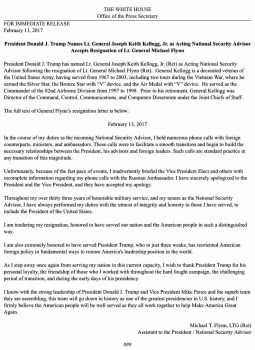Essentia Health Terminates 50 Employees for Not Getting Flu Vaccine
Essentia Health, an integrated health company based in Minnesota, has fired around 50 employees after they failed to get vaccinated for influenza. The company recently announced a new policy for all employees who had no medical or religious grounds for an exemption to get the flu shot, or otherwise risk termination. Essentia Health reportedly gave the November 20 deadline for the flu shots in October.
The company has its headquarters in Duluth, Minnesota. It has a number of long-term care and assisted living facilities, as well as 75 clinics and 15 hospitals a research institute and several ambulance services. Essentia Health serves rural communities in Minnesota, Wisconsin, North Dakota and Idaho. There are 14,700 people who work at Essentia Health, including at least 1,900 doctors and healthcare practitioners. The National Committee for Quality Assurance has accredited the Essentia Health system as an Accountable Care Organization. http://www.essentiahealth.org/main/overview-about-us.aspx
Earlier this year, the company had allegedly asked employees to receive the vaccination to prevent already sick patients from getting sicker. The Centers for Disease Control and Prevention released an advisory encouraging people to get the flu vaccine as it greatly decreases the possibility of getting infected, even though the vaccine is not one hundred percent effective. “Flu vaccination can reduce flu illnesses, doctors’ visits, and missed work and school due to flu, as well as prevent flu-related hospitalizations. In 2017, a study in Pediatrics was the first of its kind to show that flu vaccination also significantly reduced a child’s risk of dying from influenza. The more people who get vaccinated, the more people will be protected from flu, including older people, very young children, pregnant women, and people with certain long-term health conditions who are more vulnerable to serious flu complications.” https://www.cdc.gov/flu/about/season/flu-season-2017-2018.htm
In their flu update page, updated on December 1, 2017, the Centers for Disease Control and Prevention said that the number of people seeking health care for flu-like symptoms is higher than the national baseline and that flu activity indicators are greater than usual. “Four states reported widespread flu activity, ten states reported regional flu activity and 24 states reported local influenza activity.” https://www.cdc.gov/flu/weekly/summary.htm
Dr . Rajesh Prabhu, Essentia Health’s Chief Patient Quality and Safety Officer, said that the vaccine is the best way to protect yourself and vulnerable members of the community. Dr. Prabhu is also a specialist in treating infectious diseases. “Getting a flu shot is not only the most effective way to prevent getting a serious case of influenza, but it also protects members of our community, especially the most vulnerable – elderly, young children, and those with significant health conditions that may not respond as well to the flu vaccine.” http://www.essentiahealth.org/main/blogs/two-simple-things-to-protect-yourself-and-your-lov-1681.aspx
However, there are three workers’ unions that have fought the company’s vaccination policy and pursued an injunction from federal courts to prevent Essentia Health from terminating employees who refused to comply with its flu vaccine policy.
In a letter to its members dated November 13, 2017, United Steelworkers’ representatives wrote, “We filed a grievance because we believe that this unilaterally implemented policy violates our collective bargaining agreement. We also filed unfair labor practice charges with the National Labor Relations Board (NLRB) because we believe that the Company did not have the right under federal labor law to establish this policy without bargaining.” http://myuswlocal.org/sites/US/LU9460/index.cfm?action=article&articleID=FFB3386A-E174-40D9-9587-AC2E52E90F01
The Minnesota Nurses Association and the American Federation of State County and Municipal Employees, Council 65, has also filed complaints against Essentia Health.
The Minnesota Nurses Union also announced in a statement that it will intercede on behalf of any terminated nurse and file a grievance against the company. They also explained the nurses’ reasons for not getting the flu vaccine. “Nurses continue to oppose the mandatory flu shot policy for many reasons. Voluntary programs have been shown to easily increase participation; such policies often do not take into account employees’ religious or moral convictions; and healthcare workers are often disciplined for using sick time within a period of time – even if the sick time is a result to an adverse flu shot reaction.” http://mailchi.mp/mnnurses/will-battle-essentia-over-flu-shot-firings
Originally formed in January 2004 when the Benedictine Health System partnered with the SMCD Health System, Essentia Health was also joined by Innovis Health in 2008. That same year, all the health facilities of the Benedictine Health System were transferred to the company as well. In 2010, the company expanded further when the SMDC Health System, Brainerd Lakes Health, Innovis Health, Essentia Community Hospitals and Clinics, and the Essentia Institute of Rural Health all came together. http://www.essentiahealth.org/main/our-history.aspx
For more information on Essentia Health, please see http://www.essentiahealth.org
To see the CDC statement on the 2017-2018 flu season: https://www.cdc.gov/flu/about/season/flu-season-2017-2018.htm


